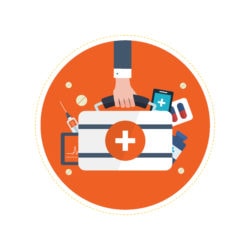Every organization and practice needs to maintain patient privacy, but that is harder to do in the age of technology than ever. HIPAA requirements did not build in steps on how to do this when it comes to digital innovation – things like consumer-driven health apps and virtual visits have complicated the process.
New Laws? New Regulations? What’s to Come?
HIPAA Is changing, but not at a fast pace needed to keep up. Industry stakeholders have communicated with Congress about the need for updates to health data privacy regulations as well as consumer protection rates that relate to health apps. Quite a few initiatives have been proposed, and some legislation has seen strong feedback. The pandemic has slowed any progress in these areas, even as more people use the internet for healthcare now than ever before.
There is no update to HIPAA, and standards like the General Data Protection Regulation in place in E.U. are unlikely to occur in the U.S. due to its highly restrictive nature. It simply would be nearly impossible to implement in the U.S.
Tips and Tools for Ensuring Patient Privacy Today
While the industry waits to find out if and when new regulations will be released, it’s still the responsibility of companies of all types to do their part to protect patient privacy. To do that, they may want to consider some of these areas.
Recognize Emerging Risks Within Your Organization
A good starting point is to always have a careful eye on the emerging risks taking place within any practice. For example, automated insulin pumps and other medical devices help minimize nurse workload, but if they are interconnected, they can provide some access to patient data, causing concerns for security. Automated and connected defibrillators and pacemakers provide doctors with patient information from home, often necessary information in creating and managing healthcare plans.
Yet, there are security risks here that need to be considered. Most of these connections are unprotected, creating vulnerabilities to accessing patient information or giving third parties access to data.
Monitor Security from the Ground-Up
Healthcare data is some of the most valuable information sold on the black market. There are plenty of bad hackers looking for opportunities to access this type of data to use for numerous things. That means there’s even more importance in ensuring this data remains safe, including through all touch points such as the EMR system.
One of the best ways to do this is to build security into devices. Instead of relying on consumers to secure their own data, it’s critical to have ways to protect that information from the start. Though this may be a complex process in most healthcare industries, it may inevitably be necessary for organizations as stricter rules on data privacy begin to emerge.
Stay on Top of New Solutions
Technology does not slow. There are numerous new solutions that are working to help organizations remain ahead of the threats. Yet, it takes a focused effort to monitor these and implement them as they become available.
One, perhaps most significant, technology is the use of quantum computing. Many in the industry see this as the type of update and modernization that could transform the security landscape, including healthcare. The addition of high levels of computing power – far more than what is being used today – could help to pinpoint and eliminate security threats faster and reduce risks.
Another area of concern is the use of 5G. It is also likely to transform technology. In the healthcare industry, that may include the use of 5G-enabled wearable devices. These devices, operating on faster internet, may be able to provide more predictive and proactive tools that aid in the protection of health. Again, this means the advent of more connected devices, providing a new layer of security protections. Every entry point into secure information needs careful consideration.
Patient Education and Communication Rules Apply
Sharing patient information is often necessary but can expose organizations to privacy risks, especially in the digital age. As a result, it’s critical for organizations to put in place communication protocols to protect that information and educate patients in their role in protecting data. That includes when they send information to their doctor digitally. If there is digital communication, whether through email or text messages, it is necessary to put in place a process for ensuring this is done safely.
Organizations need to focus heavily on protecting stored data, new information, and interconnected devices to ensure patient privacy remains as protected as possible. A component of this will come in updates to regulatory requirements. Organizations should not wait for those rules to be put in place for taking action now to do what they can to minimize risk.
Related article: Where HIPAA Violations Are Most Likely: Medical Reception Desks.
For more information on how technology can be used to support communications in the healthcare industry while ensuring patient privacy, follow PatientCalls.







